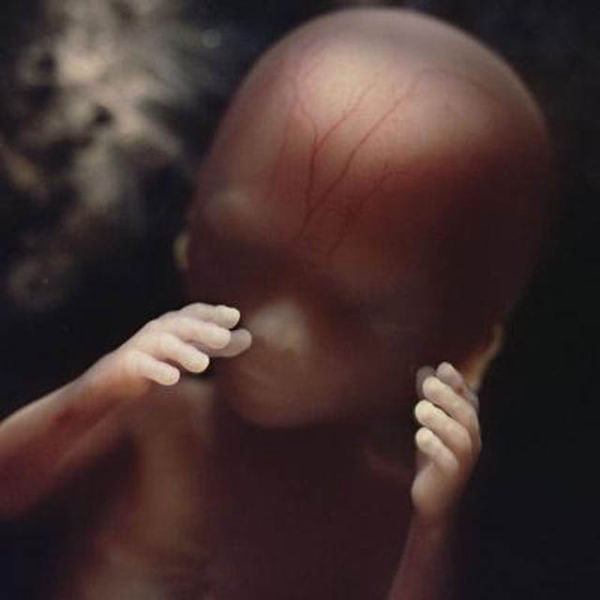Lennart Nilsson Swedesh fotografer menghabiskan 12 tahun hidupnya mengambil gambar dari janin yang berkembang di dalam rahim. Foto-foto yang luar biasa yang diambil dengan kamera konvensional dengan lensa makro, endoskopi dan mikroskop elektron scanning. Nilsson menggunakan perbesaran ratusan ribu dan "bekerja" tepat di rahim. Foto pertama dari janin manusia diambil pada tahun 1965.




























Sperm in the fallopian tube.

The egg cell.

Will they have a date?

The fallopian tube.

Two sperms are contacting with the egg cell.

The winning sperm.

Sperm.

5-6 days. The clump has developed into a blastocyst, containing many more cells, and has entered the womb.

8 days. The human embryo is attached to a wall of the uterus.

The brain starts to develop in the human embryo.

24 days. The one-month-old embryo has no skeleton yet. There is only a heart that starts beating on the 18th day.

4 weeks.

4.5 weeks.

5 weeks: Approximately 9 mm. You can now distinguish the face with holes for eyes, nostrils and mouth.

40 days. Embryonic cells form the placenta. This organ connects the embryo to the uterine wall allowing nutrient uptake, waste elimination and gas exchange via the woman’s blood supply.

Eight weeks. The rapidly-growing embryo is well protected in the foetal sac.

10 weeks. The eyelids are semi-shut. They will close completely in a few days.

16 weeks. The foetus uses its hands to explore its own body and its surroundings.

The skeleton consists mainly of flexible cartridge. A network of blood vessels is visible through the thin skin.

18 weeks: Approximately 14 cm. The foetus can now perceive sounds from the outside world.

19 weeks.

20 weeks: Approximately 20 cm. Woolly hair, known as lanugo, covers the entire head.

24 weeks.

26 weeks.

6 months. There are still 8-10 weeks ahead, so the little human is getting ready to leave the uterus. It turns upside down because it will be easier to get out this way.

36 weeks. The child will see the world in 4 weeks.

